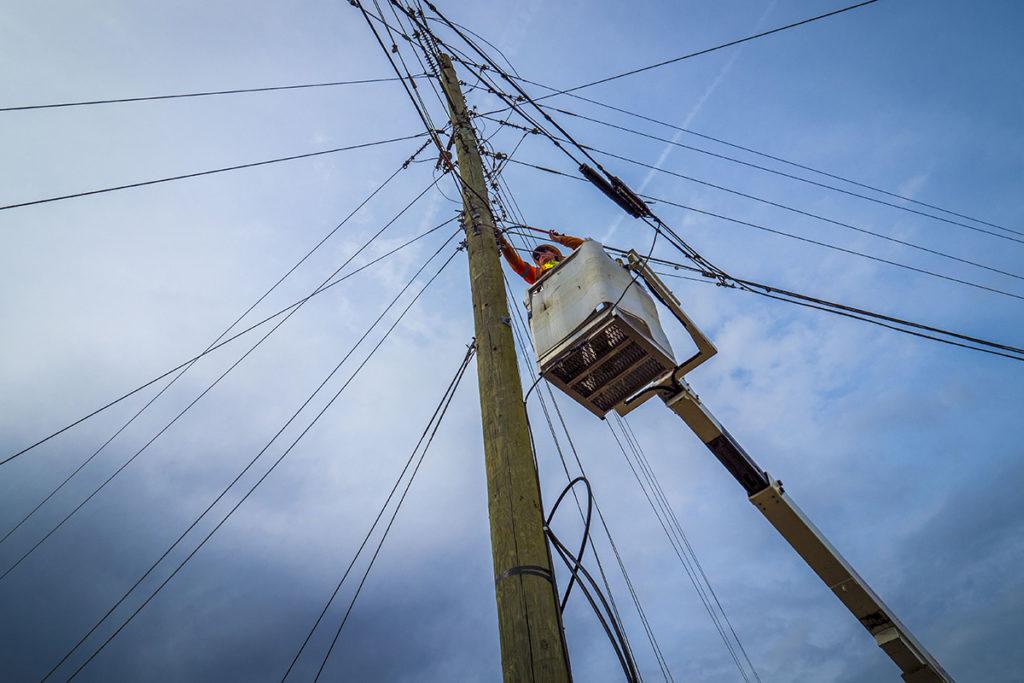
Congress has passed legislation to improve the accuracy of federal broadband maps, making it easier for electric cooperatives to secure funding to bring high-speed internet service to the rural communities that need it most.
The Senate voted Tuesday to approve the bipartisan Broadband Deployment and Technological Availability Act, known as the DATA Act.
Senators had passed a previous version of the legislation in December, but they had to vote on it again because the House made changes when it approved the bill earlier this month.
The bill requires the Federal Communications Commission to collect more detailed data from broadband providers. The legislation also makes it illegal for providers to knowingly provide false or incomplete information to the FCC and allows co-ops, consumers, local governments and others to challenge FCC maps with their own data.
The bill will require the FCC to update its existing broadband maps, said Sen. John Thune, R-S.D., who co-sponsored the DATA Act.
President Trump is expected to sign the bill into law.
“Bridging the digital divide is impossible without accurate service maps showing who has broadband access and who doesn’t,” said NRECA CEO Jim Matheson. “The Broadband DATA Act charts a course for a more connected rural America and is a welcome bipartisan solution under the leadership of the Senate Commerce Committee and the House Communications and Technology Subcommittee. It builds on the success of more than 100 electric co-op rural broadband projects and injects much-needed accountability into the broadband mapping process.”
Co-op leaders have long known that national broadband maps do not adequately reflect the lack of access throughout rural America, said Kelly Wismer, NRECA’s legislative affairs director on broadband and telecommunications issues. The legislation, which contains key provisions that NRECA supported, will make it easier to identify areas that need service and make those communities eligible for federal funds.
Dan Stelpflug, director of operations, engineering and technology at Allamakee Clayton Electric Cooperative in Postville, Iowa, testified before a House subcommittee last June that faulty FCC data was causing a financial hardship for the co-op and its roughly 10,000 consumer-members. The co-op ended up having to essentially pay back 23% of a $1.4 million broadband grant it received in 2014 because the grant was based on bad data that indicated the co-op could reach more potential customers than was actually possible.
“More accurate data and mapping showing broadband availability is a key part of reaching all rural Americans with high-speed broadband service,” he said recently. “This will enable us to clarify existing gaps in coverage, and harmonize the diverse solutions that will be required to help rural Americans keep pace with their urban counterparts.”
Faulty federal data can wrongly show that rural residents have widespread access to broadband when only a few people in a community are connected, Wismer said. It also can deprive co-ops of the chance to compete for broadband grants if the data inaccurately shows that communities are already served.
“Congressional action on broadband mapping will go a long way toward making sure millions of rural Americans are not locked out of the modern economy due to inaccurate maps,” Wismer said.
Broadband service is essential to allow communities served by co-ops to grow local businesses, expand online learning and access telemedicine, the bill’s supporters said.
“This bill would be an important step for collecting more precise data to improve the FCC’s flawed maps that waste resources and stifle economic development opportunities,” said Sen. Roger Wicker, R-Miss., the bill’s lead sponsor and chairman of the Senate Commerce, Science and Transportation Committee.
Sen. Amy Klobuchar, D-Minn., a co-sponsor, said it will help kids in rural America stay there when they grow up by increasing their opportunities.
“When rural Americans have access to the infrastructure needed to support improving access to broadband then we keep rural America competitive in the 21st century and beyond,” she said.
Erin Kelly is a staff writer at NRECA.